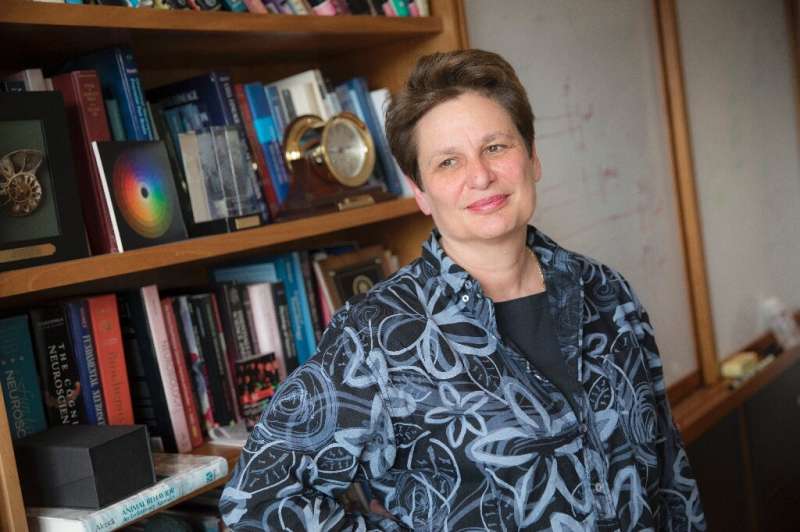Harvard scientist wins $3 mn prize for work on parenting instinct

Harvard neurobiologist Catherine Dulac had always been fascinated by the parenting urge that is hard-wired into brains across the animal kingdom.
The 57-year-old Frenchwoman was on Thursday honored for her work uncovering the neural circuitry in the mouse brain responsible for this instinct, laying the foundation for further investigation into other mammals like humans.
She was one of seven scientists from the life sciences, mathematics and fundamental physics to receive the 2021 Breakthrough Prize, founded by Silicon Valley luminaries to recognize groundbreaking discoveries.
Each winner receives $3 million, or three times the amount given by the Nobel Prize.
Dulac, a professor at Harvard who also works at the Howard Hughes Medical Institute, was investigating why female mice instinctively nurture mice pups, while male mice tend to attack them, depending on the circumstances (this behavior is typically seen in virgin males).
What Dulac showed was that the neural circuits responsible for these behaviors are present in both sexes. Hormonal changes can flip the switch—but in either direction.
That's why previously infanticidal males lovingly tend to their offspring when they become fathers, or why, under the right stressors, a mother mouse can kill her own children.
"We think what we have found can extend to other species" including humans, Dulac told AFP.
"This is an instinct, and instinct is a function of these neurons, which are, I bet, in the brains of all mammals, and tell the animal, when they are in the presence of newborns, 'You have to take care of them,'" added the scientist, who moved to the US from France 25 years ago.
Human gender applicability
Dulac is keen to emphasize her work is specific to mice.
However, it is also fundamental research and therefore is of obvious interest for people working on transgender issues since, as the professor says, "male" and "female" wiring exists in everyone (at least in mice!).
Families and allies of transgender people reach out to her often to thank her.
"I'm a scientist, I look at data, I'm neutral," Dulac says, but admits "It really touches me."
"That's when I say, 'I've been useful.'"
As for the prize money, she says that she will give part of it to causes related to the health and education of women and disadvantaged populations.
Originally from Montpellier in the south of France, Dulac studied at the prestigious Ecole Normale Superieure in Paris before leaving for the US after her doctorate.
She had originally intended to return, "but my post-doc had gone very well, and I had the opportunity to have my own lab in the US, and I wouldn't have had my own lab in France."
"There, I would have faced a really paternalistic setting, where people would say things like 'Oh you're much too young to have your own budget, you don't have enough experience to be independent'," she said.
Dulac therefore chose Harvard and has made her life there ever since, ultimately obtaining dual nationality.
She believes that, when it comes to promoting gender equality, the United States is years ahead of France.
That said, she still finds that male colleagues she meets at conferences routinely underestimate and patronize her.
"It's annoying, it's like, 'You don't expect me to have something interesting to say?'" said the professor, sighing at what could be the hard-wired instinct of some men in academia.
© 2020 AFP

















